Sixties
City presents
a wide-ranging series of
articles on all aspects of the Sixties, penned by the creator of the iconic
60s music paper Mersey
Beat
|
Sixties
City presents
a wide-ranging series of
articles on all aspects of the Sixties, penned by the creator of the iconic
60s music paper Mersey
Beat
|
|||||
|
|
‘Batman’ was one of the most popular
television series of the Sixties, a tongue-in-cheek treatment of the adventures
of a costumed superhero who had made his debut in Detective Comics in 1939
and had previously been the subject of two Columbia Pictures’ series, ‘Batman’
and ‘Batman and Robin'. ABC television was interested in featuring a series
based on a comic strip character in their 7.30 pm slot. They’d drawn up
a list of five possible choices, based on popularity: Dick Tracy, Superman,
Batman, The Green Hornet and Little Orphan Annie. As the rights to the first
two characters on the list weren’t available, they decided to go ahead with
a ‘Batman’ project. The producers initially attempted to hire actor Ty Hardin for the part, but he was busy making a ‘spaghetti western’, so they selected Adam West. For his accomplice, Robin, they hired Burt Ward. ‘Batman’ ran for 120 episodes over three seasons and eventually came to an end because of the high costs of production and shrinking audiences. The NBC network was interested in taking over the series, but they made the approach to ABC two weeks after the entire Batman set had been destroyed, which would have resulted in a new series being prohibitively expensive. When originally screened in America, the first two episodes of the show earned the highest ratings since The Beatles had originally appeared on ‘The Ed Sullivan Show.’ After the series was wrapped up, it became a popular item on syndication and has continued to be screened throughout the world ever since. Its popularity at the time ensured that numerous stars requested guest appearances in the series as villains. Batman’s adversaries were a colourful collection of eccentric ‘baddies’ and included: The Archer (Art Carney); Black Widow (Tallulah Bankhead); The Bookworm (Roddy McDowell); Cassandra (Ida Lupino); Catwoman (Eartha Kitt/Lee Meriwether (film)/Julie Newmar); Chandell (Liberace); Egghead (Vincent Price); The Joker (Cesar Romero); King Tut (Victor Buono); Lord Fogg (Rudy Vallee); Ma Parker (Shelley Winters); Minerva (Zsa Zsa Gabor); The Minstrel (Van Johnson); Mr Freeze (Otto Preminger/George Sanders/Eli Wallach); The Penguin (Burgess Meredith); The Riddler (Frank Gorshin/John Astin); Sandman (Michael Rennie); Shame (Cliff Robertson); The Siren (Joan Collins) and Zelda the Great (Anne Baxter). The popularity of ‘Batman’ led to a flood of merchandise ranging from posters and tee shirts to models of the Batmobile. There was even a hair style based on Batman’s cowl and a discotheque called Wayne Manor. ‘Batman The Movie’ was a cinema feature film released in 1966 which saw Batman and Robin battling with the combined forces of Catwoman, The Joker, The Penguin and The Riddler. For many years after the series was completed, the Batman character was presented in a light-hearted manner due to the camp treatment it had received. In the Eighties the comic book character was re-presented as a dark avenger in a Batman comic series called ‘The Dark Knight’ and there have since been several major feature films featuring the character, portrayed by several actors including Michael Keaton, Val Kilmer, George Clooney and Christian Bale. |
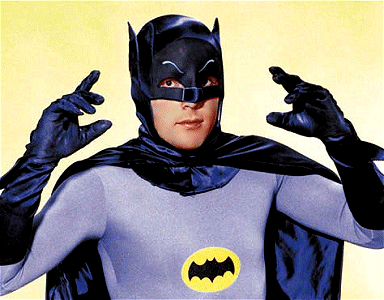 |
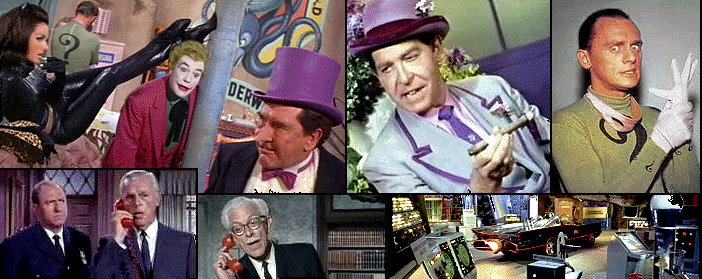 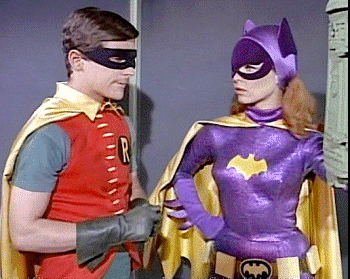 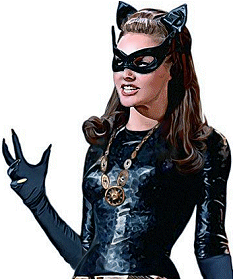 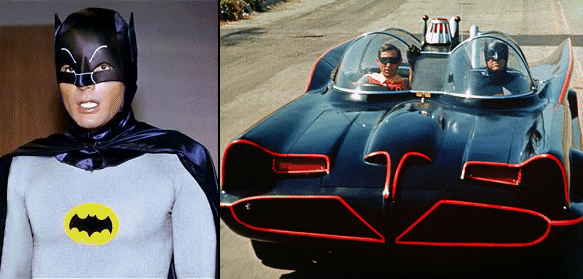 |
|
Article
Text
UK
web hosting by
|